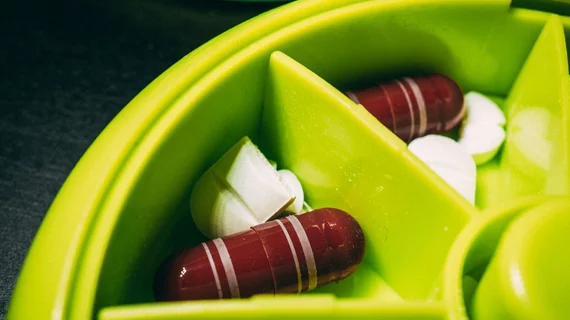The 10 most expensive drugs patients may give themselves
At a list price of $86,000 per month, Zokinvy is right now the costliest medication in the U.S. that patients can self-administer.
Manufactured by Eiger BioPharmaceuticals of Palo Alto, California, Zokinvy has only been on the market since November. Like many others making GoodRx’s top 20 as of the end of January, it treats a rare genetic condition.
Twelve of the 20 saw price increases last month, when the prescription discounter logged the largest number of price hikes in any month since 2014, according to a separate post.
“While few patients actually pay the list price, as they are typically shielded by their health insurance, the list price is still a good proxy for the price of a drug,” GoodRx points out.
Here’s the top half of the list by monthly price, along with manufacturer and clinical indication:
$86,040 Zokinvy (Eiger BioPharmaceuticals)—Hutchinson-Gilford progeria syndrome
$74,159 Myalept (Aegerion Pharmaceuticals)—leptin deficiency in patients with generalized lipodystrophy
$60,371 Mavenclad (EMD Serono)—relapsing forms of multiple sclerosis
$57,998 Ravicti (Horizon Therapeutics)—urea cycle disorders
$55,310 Actimmune (Horizon Therapeutics)—osteopetrosis and chronic granulomatous disease
$48,498 Oxervate (Dompé)—neurotrophic keratitis
$46,828 Takhzyro (Takeda)—angioedema
$46,502 Juxtapid (Aegerion Pharmaceuticals)—homozygous familial hypercholesterolemia
$45,465 Cinryze (Takeda)—hereditary angioedema
$42,570 Chenodal (Travere Therapeutics)—gallstones
For the rest of the top 20 priciest patient-administered meds according to GoodRx, click here.

